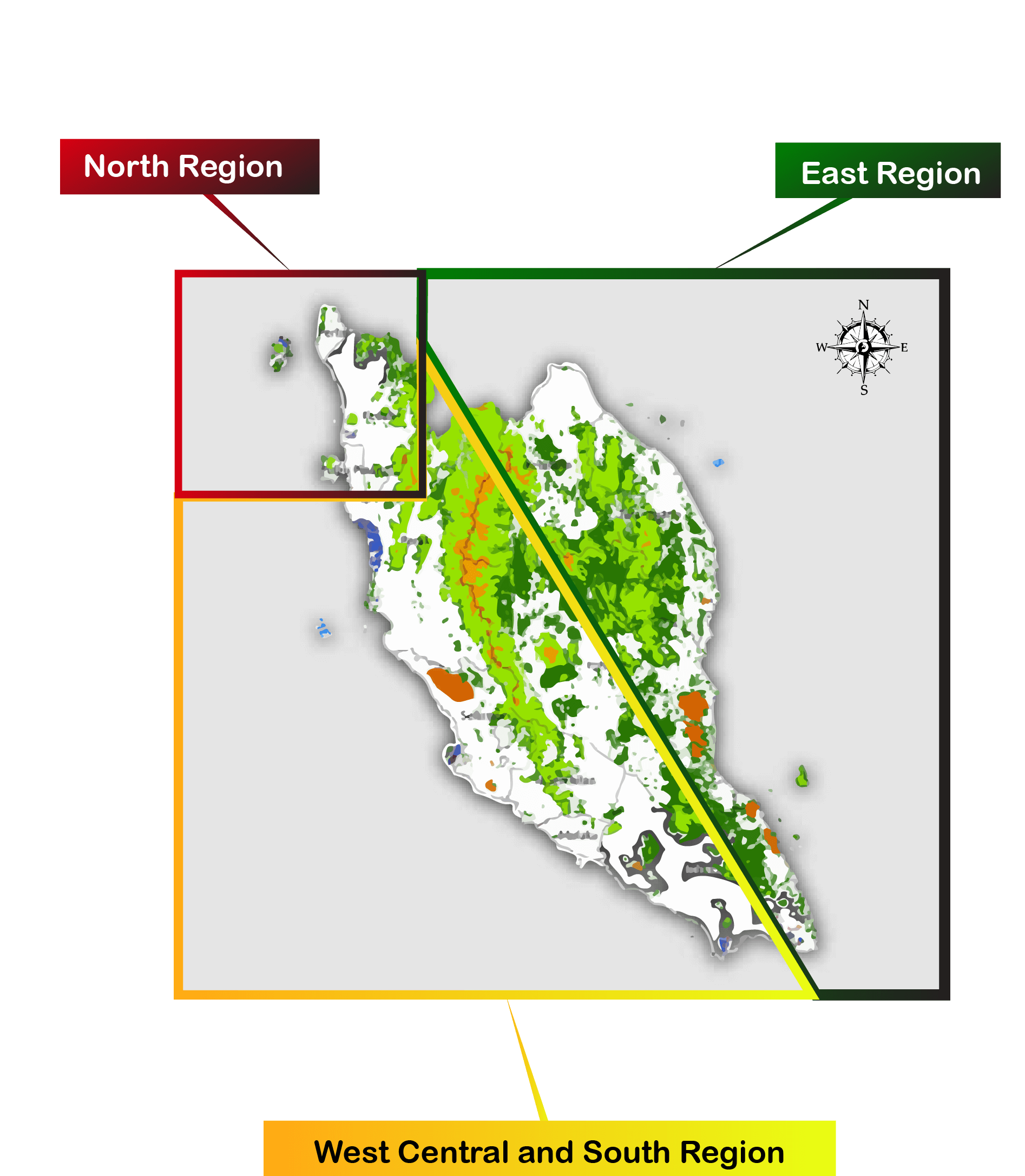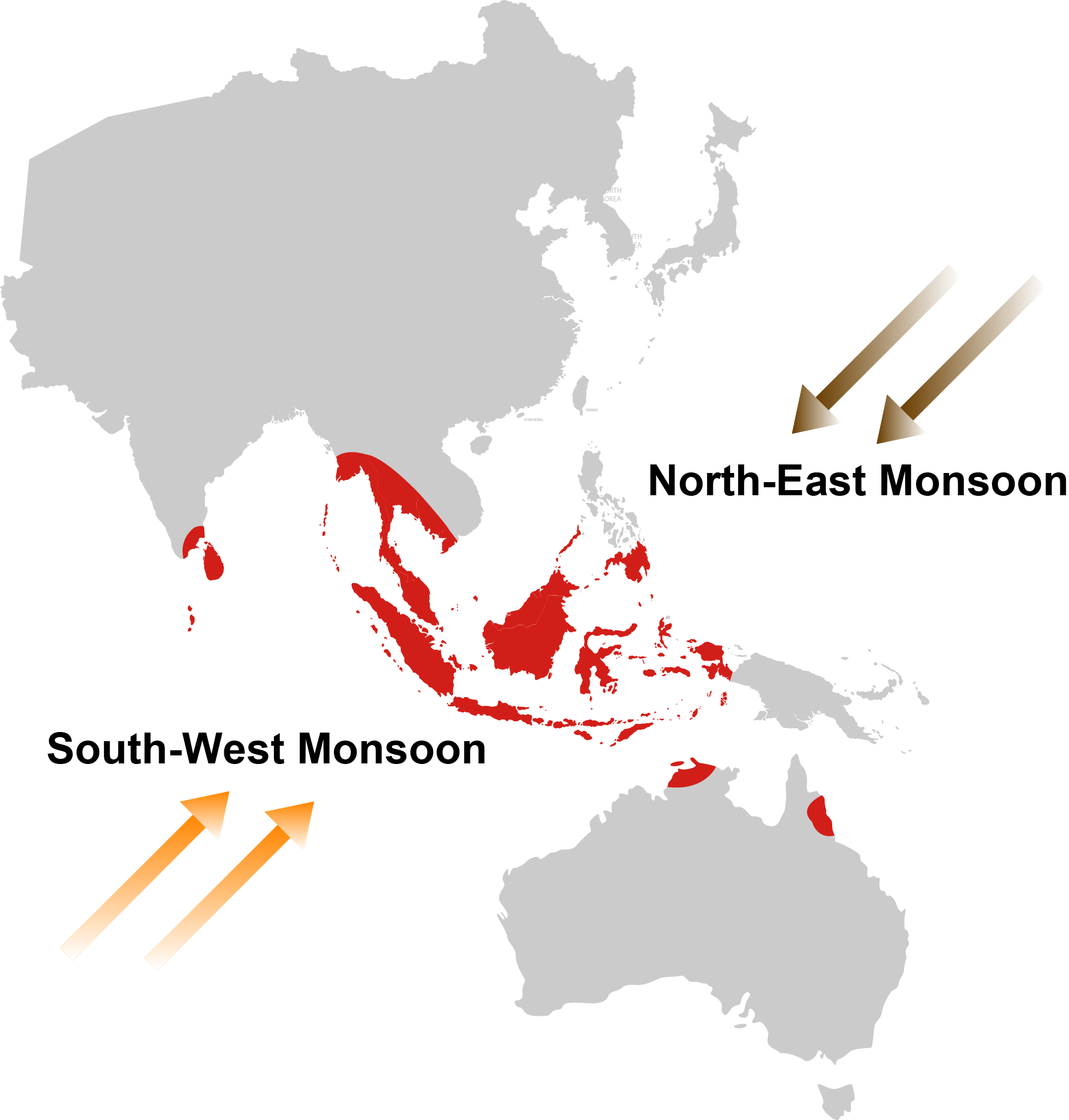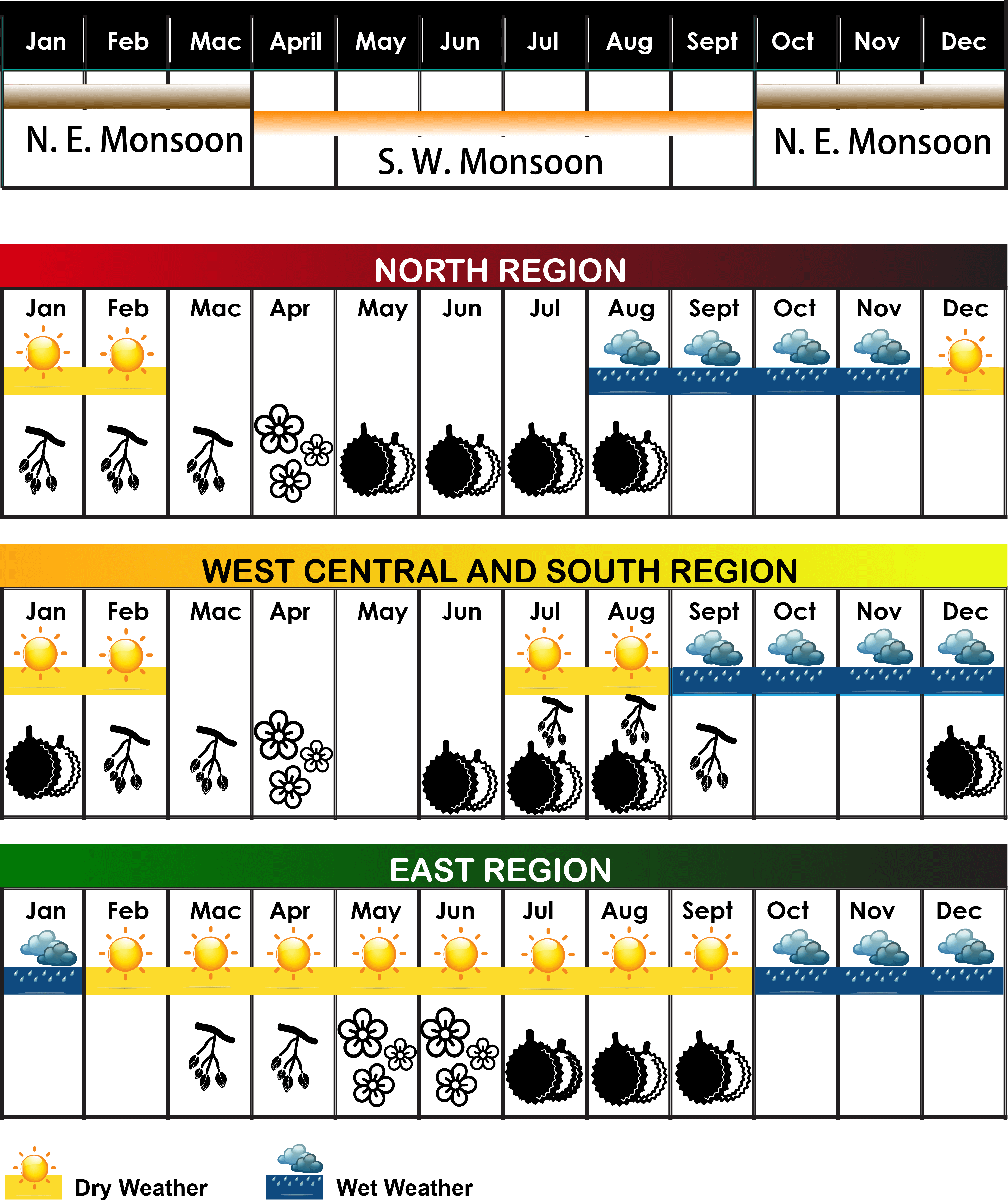About Durian
Meet the King of Fruits
Durian is a tropical fruit distinguished by its large size, spiky, hard outer shell and even more memorable smell. Durian is primarily harvested in the Southeast Asian countries of Malaysia, Thailand, and Indonesia. There are around 30 individual species of Durio, and hundreds of varieties in just Thailand, Malaysia and Indonesia. The fruit’s flesh can range in colour depend- ing on the species of Durio. It’s most commonly yellow or white, but can also be red or green.
Durian is often referred to as a controversial fruit. People who love it will say the taste and the smell lie cream cheese, onion sauce or others, the more they eat, the less they feel inclined to stop. However, people who hate it will say its taste and smell like garbage, rotting onion and some of them will feel uncomfortable and headache.

Health Benefits
Durian is a unique tropical fruit. It’s often referred to as the ‘King of Fruits’ due to its high nutrition, containing more than most other fruits.
The king of fruits is thus excellent for promoting appetite, strengthen immunity, helps balance fertility hormones progesterone and estrogen, treat dysmenorrhea, improve digestive health, help regulate blood pressure and reduces cancer risk.
Durians are a good source of nutrients, but it contains high calories and carbohydrates, so durian should be consumed in moderation to avoid overconsumption that warm the body can cause rashes, fever, and a sore throat.
Here are the health benefits of eating durian:
-
Promotes appetite
-
Strengthens immunity
-
Balances hormones progesterone and estrogen
-
Improves Dysmenorrhea
-
Reduces cancer risks
-
Helps regulate blood pressure
-
Improves digestive health
Nutritional Values
Durian pulp is an excellent source of various nutrients that are essential to the human diet. Durian is rich in vitamin C, vitamin E, and vitamin B complexes such as folic acid, thiamine, riboflavin, niacin and vitamin B6. It also contains a high amount of minerals including potassium, iron, calcium, magnesium, zinc, and phosphorus. Durian fruit is a natural multivitamin and a multi-mineral supplement. It also contains a large amount of dietary fat and dietary fibre.
BASIC
GROWTH
REQUIRE-
MENTS
Soil
Durian thrives on gently sloping land (slope 6-12°) and in foothills. If the elevation is greater than 600-900m above sea level, durian does not perform well. The durian cannot tolerate wet conditions and is vulnerable to wind damage during storms and typhoons, so it must be protected.
Temperature
Durian is a tropics native that requires a hot (24-32°C) and a moist environment with 75-80% humidity. It will not grow if the average daily temperature falls below 22°C.
Rainfall
It requires at least 1500mm of rain per year. Because the durian root system is so shallow (30cm), supplementary irrigation is essential at all stages of plant development.
Weather
For mature trees, a dry spell of about 1 to 2 months is required for flowers to initiate and develop fully. Four weeks after the flowers have bloomed, the tree requires only enough water for proper fruit development. Too much water will cause the tree to produce new leaves instead of fruits.
Irrigation
Young durian trees are particularly vulnerable to drought, but high mortality can be avoided with proper irrigation. Irrigated trees are more vigorous and bear fruits much earlier, usually at the age of 5-6 years.
World Climate Zones

Peninsular Malaysia Division

Malaysia Monsoon Season

Malaysia Durian Season


